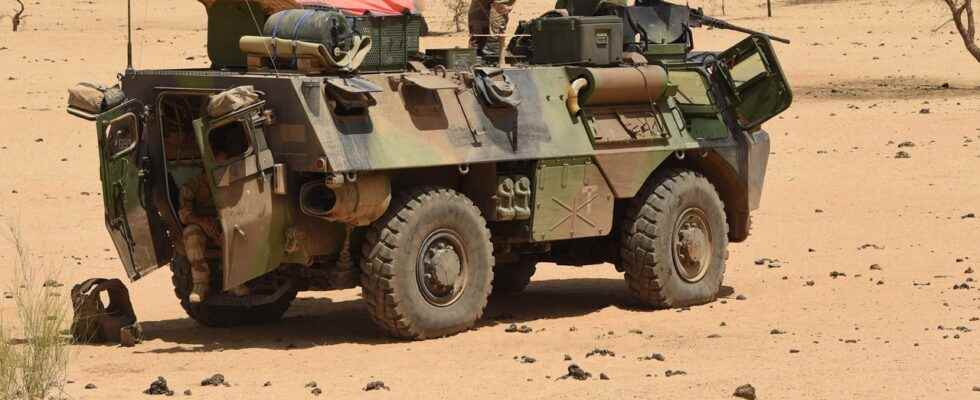Romain Rouillard
modified to
06:16, November 09, 2022
It cost the lives of 58 French soldiers and mobilized up to 5,500 soldiers in the Sahel, engaged in the fight against jihadism in the region. Operation Barkhane will officially end on Wednesday, the Elysee Palace said on Tuesday. An announcement that comes just under three months after the withdrawal of the last tricolor soldiers in Mali. From an immense hope aroused during its outbreak until its disgrace, return in six key dates on an operation with contrasting success.
January 2013: launch of Operation Serval, the ancestor of Barkhane
In March 2012, separatist rebel groups and jihadist movements linked to Al-Qaeda caused trouble in Mali. President Amadou Toumani Touré is targeted by a series of attacks and several towns in the north of the country, including Gao, Kidal and Timbuktu are occupied.
Almost immediate reaction from Paris which triggered Operation Serval on January 11, 2013. 5,000 soldiers are sent to the region to thwart the jihadist plans. Tricolor troops manage to liberate Gao in the east of the country as well as Timbuktu and seize Kidal airport. At this moment, France, and its president at the time François Hollande, are welcomed in triumph by the local population.
François Hollande triumphantly welcomed in Timbuktu in 2013.
Credits: FRED DUFOUR / POOL / AFP
August 2014: goodbye Serval, hello Barkhane
To concentrate its efforts in the Sahel after a heavy defeat suffered by the Malian army in Kidal, Paris buries Serval and launches Operation Barkhane. “The goal is to prevent what I call the highway of all traffic from becoming a permanent crossing point, for the reconstitution of jihadist groups between Libya and the Atlantic Ocean”, declared the minister at the time. French Defense Minister, Jean-Yves Le Drian.
More than 4,000 men are then mobilized as well as armored vehicles, helicopters, fighter planes and drones. Barkhane then becomes the largest external operation of the French army and will lead in 2015 to the Algiers agreement signed between the Malian government and the Tuareg rebellion. But its application remains imperfect and does not prevent a resurgence of violence in the south-east of the country, in Burkina Faso and in Niger.
At the launch of Operation Barkhane, more than 4,000 French soldiers were mobilized.
Credits: Miguel MEDINA / AFP
2015-2019: Serial attacks and helicopter crash
The continued instability in the region leads to various attacks and leads to a series of intercommunal violence. The Radisson Blu hotel in Bamako was targeted in November 2015, killing around twenty people, including 14 foreigners. The cities of Gao and Sévaré suffered two Islamist attacks, claimed by Al-Qaeda, between June 29 and July 2, 2018.
Military bases in Mali and Niger are then the target of the Islamic State group in the greater Sahara (EIGS). But the deadliest event for the French army came on November 25, 2019 with the accidental collision of two helicopters during a night operation against a jihadist group. 13 tricolor soldiers will die there.
The Bamako hotel, the Radisson Blu, was targeted by an attack on November 20, 2015.
Credits: HABIBOU KOUYATE / AFP
2020-2021: A coup that redistributes the cards
While the French special forces had just eliminated Abdelmalek Droukdel, the emir of Al-Qaeda in the Islamic Maghreb (AQIM), a coup d’etat is preparing in Bamako to overthrow President Ibrahim Boubacar Keïta, favorable to the tricolor presence In the region. A first attempt which ended in failure but which did not discourage the military junta which succeeded in gaining power a year later, on May 24, 2021.
What instantly refresh relations between Paris and Bamako and mortgage the future of Operation Barkhane.
Malian soldiers escort the vehicle of the new president, May 31, 2021.
Credits: Michele Cattani / AFP
June 2021: Emmanuel Macron announces the end of Operation Barkhane
The reaction of the Élysée was not long in coming. On the occasion of the G7 summit in the United Kingdom, Emmanuel Macron decides to put an end to Operation Barkhane. “France cannot replace (…) political stability, the choice of sovereign states”, he justifies then.
5,000 men must then leave the region, but a large half of them will remain there initially. However, Paris does not intend to suspend any form of military cooperation with local armies. “There is no French disengagement”, assures the Minister of the Armies Florence Parly at the time.
February 2022: the military withdrawal is formalized by Emmanuel Macron
This is the almost definitive end clap for Operation Barkhane. Two weeks after the expulsion of the French ambassador to Mali, demanded by the military junta in power, Emmanuel Macron endorses the military withdrawal of France and its partners on February 17.
A decision also motivated by the mistrust aroused by the French military presence among the local populations but also by the presence of the Russian paramilitary group Wagner in the region. In August 2022, the last soldiers still in operation in Mali left the country, without major incident.



